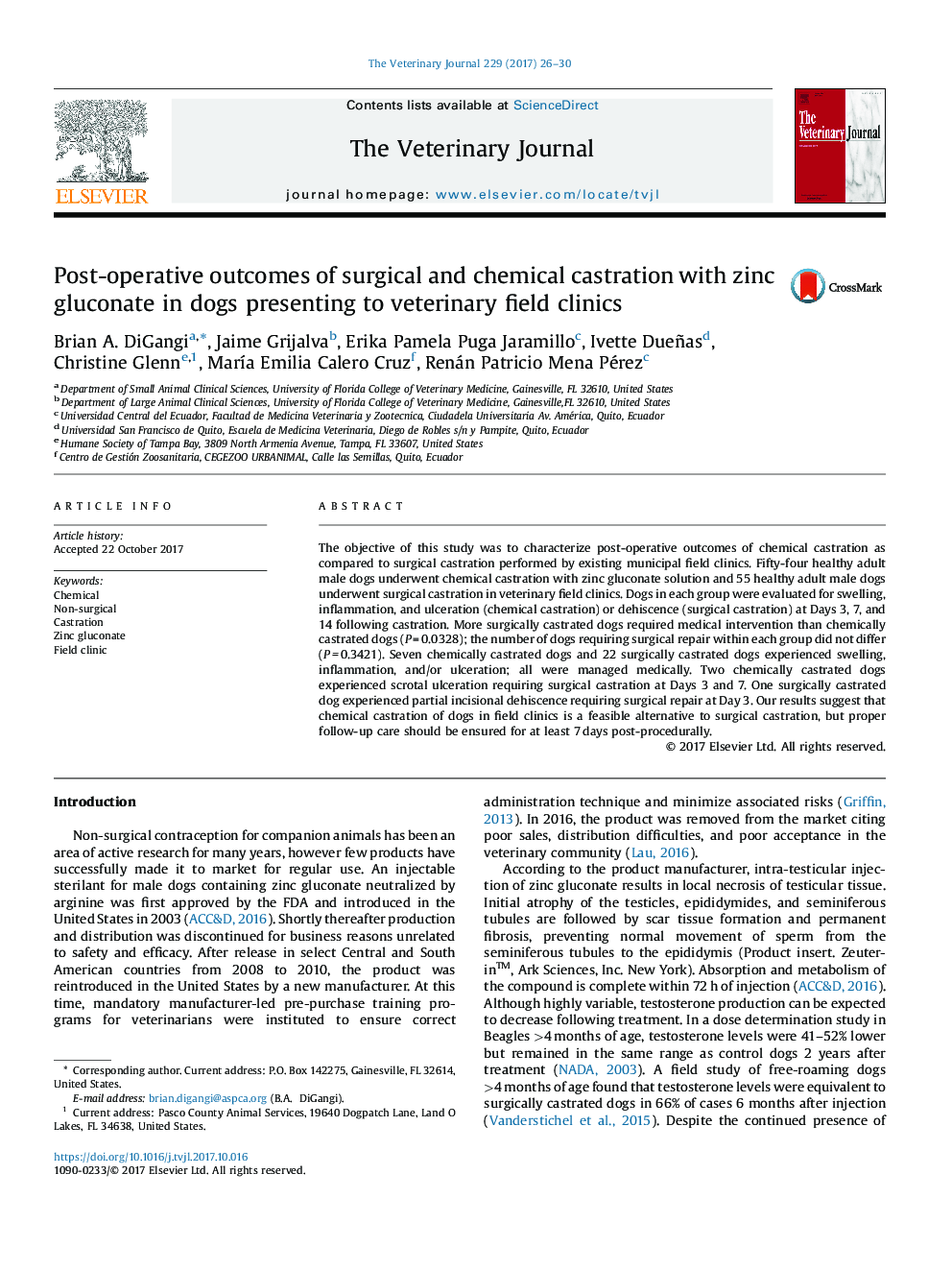| کد مقاله | کد نشریه | سال انتشار | مقاله انگلیسی | نسخه تمام متن |
|---|---|---|---|---|
| 8505033 | 1555214 | 2017 | 5 صفحه PDF | دانلود رایگان |
عنوان انگلیسی مقاله ISI
Post-operative outcomes of surgical and chemical castration with zinc gluconate in dogs presenting to veterinary field clinics
ترجمه فارسی عنوان
نتایج پس از عمل کاستاریکا جراحی و شیمیایی با گلوکونات روی در سگ ارائه شده به درمانگاه های دامپزشکی
دانلود مقاله + سفارش ترجمه
دانلود مقاله ISI انگلیسی
رایگان برای ایرانیان
کلمات کلیدی
شیمیایی، غیر جراحی، اختگی، گلوکونات روی، کلینیک فیلد
موضوعات مرتبط
علوم زیستی و بیوفناوری
علوم کشاورزی و بیولوژیک
علوم دامی و جانورشناسی
چکیده انگلیسی
The objective of this study was to characterize post-operative outcomes of chemical castration as compared to surgical castration performed by existing municipal field clinics. Fifty-four healthy adult male dogs underwent chemical castration with zinc gluconate solution and 55 healthy adult male dogs underwent surgical castration in veterinary field clinics. Dogs in each group were evaluated for swelling, inflammation, and ulceration (chemical castration) or dehiscence (surgical castration) at Days 3, 7, and 14 following castration. More surgically castrated dogs required medical intervention than chemically castrated dogs (PÂ =Â 0.0328); the number of dogs requiring surgical repair within each group did not differ (PÂ =Â 0.3421). Seven chemically castrated dogs and 22 surgically castrated dogs experienced swelling, inflammation, and/or ulceration; all were managed medically. Two chemically castrated dogs experienced scrotal ulceration requiring surgical castration at Days 3 and 7. One surgically castrated dog experienced partial incisional dehiscence requiring surgical repair at Day 3. Our results suggest that chemical castration of dogs in field clinics is a feasible alternative to surgical castration, but proper follow-up care should be ensured for at least 7Â days post-procedurally.
ناشر
Database: Elsevier - ScienceDirect (ساینس دایرکت)
Journal: The Veterinary Journal - Volume 229, November 2017, Pages 26-30
Journal: The Veterinary Journal - Volume 229, November 2017, Pages 26-30
نویسندگان
Brian A. DiGangi, Jaime Grijalva, Erika Pamela Puga Jaramillo, Ivette Dueñas, Christine Glenn, MarÃa Emilia Calero Cruz, Renán Patricio Mena Pérez,
